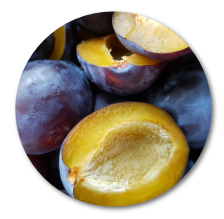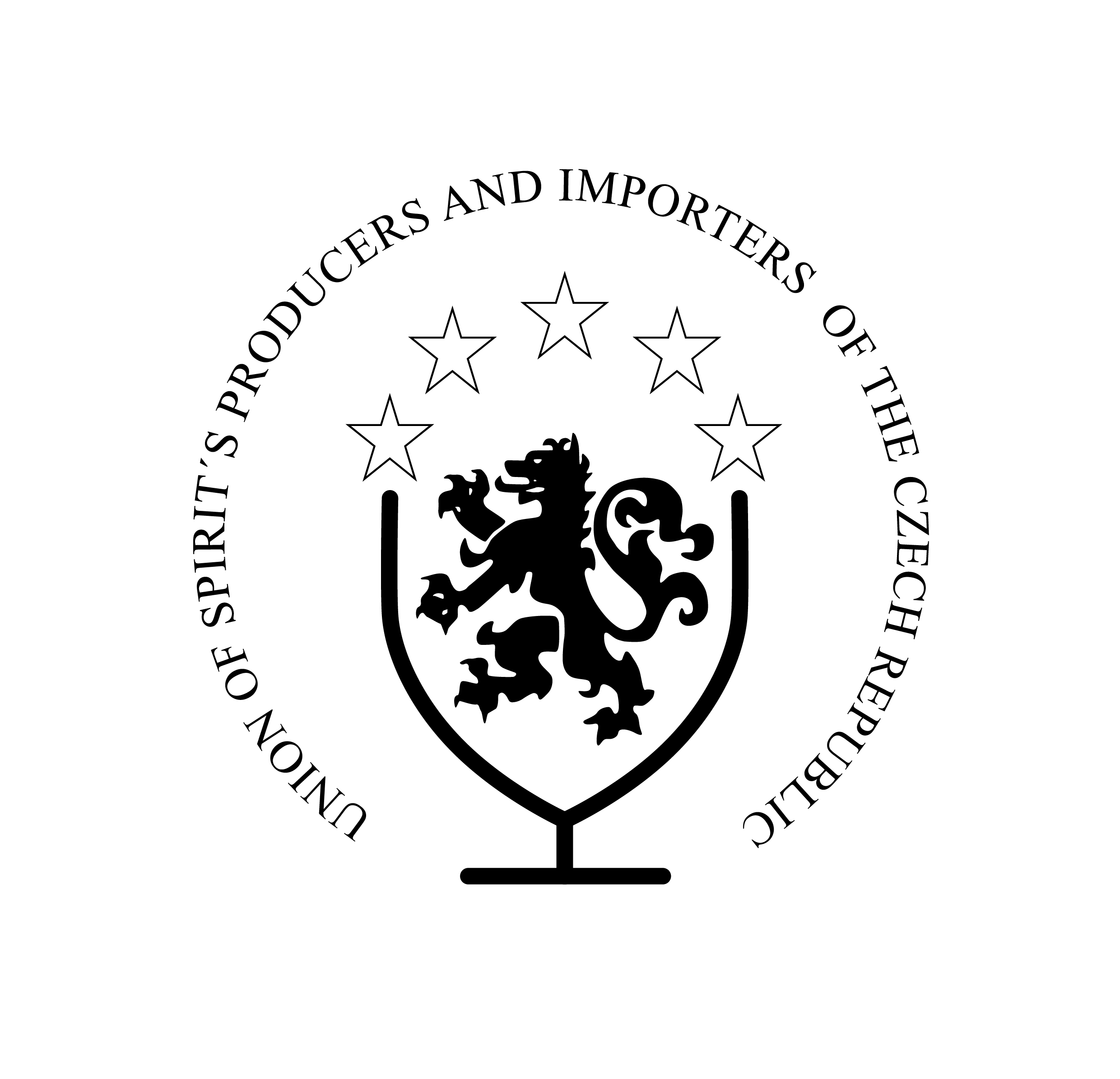History
What is the history of the production of spirits in the Czech Republic?
16th century
The history of the Czech distillery and production of spirits dates back to the 16th century. The Distillery U Zeleného stromu in Prostějov, founded on 4th July 1518, carries the title of the oldest one in Europe.
The first mention of the production of spirits in Vizovice comes from 1585.

17th century
In most parts of the Czech Republic, liquor was produced from fermented (spoiled) beer or wine. It was only after the increase in its popularity that other materials (especially grain) started to be used more.
18th century
Grain was becoming a sought-after raw material for the production of liquor, and this field thus began to compete significantly with bakery and milling. This is why other options of raw material began to be sought. With the support of the Austro-Hungarian government, plums began to be grown in the Vizovice region at the end of the 18th century, which became the basis of the famous slivovitz.
Josef Vitus Becher rented his first winery in Carlsbad and began experimenting with the production of liqueurs.
19th century
Becher's experiments continued in collaboration with Dr Frobrig, the English physician, and in 1807, a drink called Karslbader English Bitter, originally used as stomach drops, was launched. It later became a famous Carlsbad liqueur (the name Becherovka was registered as a trademark later, in the early 20th century).
A collective-farm plant for the production of slivovitz called RAZOV was established in Vizovice.
20th century
In 1920, Lionello Stock bought a distillery in Božkov and thus laid the foundations for the production of Fernet Stock in our country.
Rudolf Jelínek becomes the owner of RAZOV. Consequentially, the production is named after him.
After the World War II
The former Moritz Schulz fruit wine production in Jindřichův Hradec became the place where the famous “tuzemský rum” (domestic rum) began to be produced.
The Union of Spirits Producers was founded on 19th April 1994. Its main mission was to coordinate the interests and goals of newly established private companies in the field of spirits production in the new environment.
21st century
On 1st January 2011, three most important importers of spirits - Brown-Forman, Remy Cointreau, and Global Spirits - joined the Union, and the name was changed to the Union of Producers and Importers of Spirits of the Czech Republic. Thus, 17 manufacturers and importers, representing more than 80% of the market, came together in order to promote and defend common interests and to represent their members to external entities at home and abroad.

UVDL © 2020; All rights reserved


History
What is the history of the production of spirits in the Czech Republic?
16th century
The history of the Czech distillery and production of spirits dates back to the 16th century. The Distillery U Zeleného stromu in Prostějov,founded on 4th July 1518, carries the title of the oldest one in Europe.
The first mention of the production of spirits in Vizovice comes from 1585.

17th century
In most parts of the Czech Republic, liquor was produced from fermented (spoiled) beer or wine. It was only after the increase in its popularity that other materials (especially grain) started to be used more.

18th century
Grain was becoming a sought-after raw material for the production of liquor, and this field thus began to compete significantly with bakery and milling. This is why other options of raw material began to be sought. With the support of the Austro-Hungarian government, plums began to be grown in the Vizovice region at the end of the 18th century,which became the basis of the famous slivovitz.
Josef Vitus Becher rented his first winery in Carlsbad and began experimenting with the production of liqueurs.
19th century
Becher's experiments continued in collaboration with Dr Frobrig, the English physician, and in 1807, a drink called Karslbader English Bitter, originally used as stomach drops, was launched. It later became a famous Carlsbad liqueur (the name Becherovka was registered as a trademark later, in the early 20th century).
A collective-farm plant for the production of slivovitz called RAZOV was established in Vizovice.
20th century
In 1920, Lionello Stock bought a distillery in Božkov and thus laid the foundations for the production of Fernet Stock in our country.
Rudolf Jelínek becomes the owner of RAZOV. Consequentially, the production is named after him.
After the World War II
The former Moritz Schulz fruit wine production in Jindřichův Hradec became the place where the famous “tuzemský rum” (domestic rum) began to be produced.
The Union of Spirits Producers was founded on 19th April 1994. Its main mission was to coordinate the interests and goals of newly established private companies in the field of spirits production in the new environment.
21st century
On 1st January 2011, three most important importers of spirits – Brown-Forman, Remy Cointreau, and Global Spirits– joined the Union, and the name was changed to the Union of Producers and Importers of Spirits of the Czech Republic.Thus, 17 manufacturers and importers, representing more than 80% of the market, came together in order to promote and defend common interests and to represent their members to external entities at home and abroad.
16th century
The history of the Czech distillery and production of spirits dates back to the 16th century. The Distillery U Zeleného stromu in Prostějov, founded on 4th July 1518, carries the title of the oldest one in Europe.
The first mention of the production of spirits in Vizovice comes from 1585.

17th century
In most parts of the Czech Republic, liquor was produced from fermented (spoiled) beer or wine. It was only after the increase in its popularity that other materials (especially grain) started to be used more.
18th century
Grain was becoming a sought-after raw material for the production of liquor, and this field thus began to compete significantly with bakery and milling. This is why other options of raw material began to be sought. With the support of the Austro-Hungarian government, plums began to be grown in the Vizovice region at the end of the 18th century, which became the basis of the famous slivovitz.
Josef Vitus Becher rented his first winery in Carlsbad and began experimenting with the production of liqueurs.
19th century
Becher's experiments continued in collaboration with Dr Frobrig, the English physician, and in 1807, a drink called Karslbader English Bitter, originally used as stomach drops, was launched. It later became a famous Carlsbad liqueur (the name Becherovka was registered as a trademark later, in the early 20th century).
A collective-farm plant for the production of slivovitz called RAZOV was established in Vizovice.
20th century
In 1920, Lionello Stock bought a distillery in Božkov and thus laid the foundations for the production of Fernet Stock in our country.
Rudolf Jelínek becomes the owner of RAZOV. Consequentially, the production is named after him.
After the World War II
The former Moritz Schulz fruit wine production in Jindřichův Hradec became the place where the famous “tuzemský rum” (domestic rum) began to be produced.
The Union of Spirits Producers was founded on 19th April 1994. Its main mission was to coordinate the interests and goals of newly established private companies in the field of spirits production in the new environment.
21st century
On 1st January 2011, three most important importers of spirits - Brown-Forman, Remy Cointreau, and Global Spirits - joined the Union, and the name was changed to the Union of Producers and Importers of Spirits of the Czech Republic. Thus, 17 manufacturers and importers, representing more than 80% of the market, came together in order to promote and defend common interests and to represent their members to external entities at home and abroad.

UVDL © 2020; All rights reserved